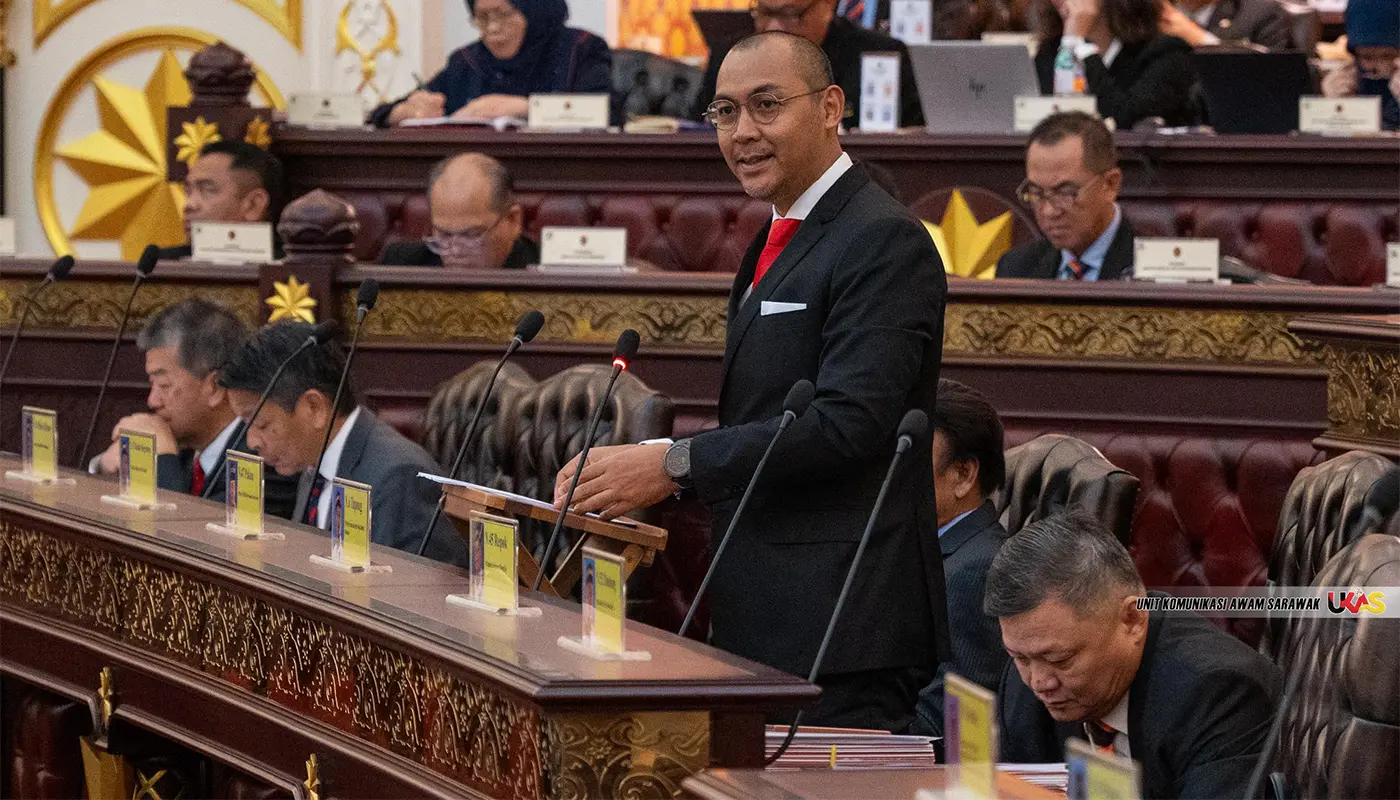KUCHING – The Sarawak government has reaffirmed its commitment to strengthening education access and producing quality human capital, with the Sarawak Free Higher Education Scheme (FTES) scheduled to begin in 2026.
During the debate on the Supply Bill (2026) at the Sarawak State Legislative Assembly, Dato Fazzrudin Abdul Rahman, Chief Political Secretary to the Premier and State Assemblyman for Tupong, highlighted the government’s consistent efforts to support students through scholarships, loans and debt relief programmes.
He revealed that in 2025 alone, the Sarawak Foundation allocated RM135 million for educational loans and RM31 million for scholarships, benefitting students across all communities.
“This year alone, the Sarawak Foundation has spent RM135 million on educational loans and RM31 million on scholarships for our children regardless of race,” he said.
In addition, the government introduced incentives for outstanding students, including loan repayment discounts worth RM27 million.
A further RM29 million was allocated to help students settle their PTPTN debts, a measure implemented annually to ease financial burdens.
Dato Fazzrudin stressed that while FTES will provide free higher education, existing assistance schemes will continue to ensure inclusivity.
He emphasised the importance of establishing strong mechanisms to prevent misuse of benefits and to ensure students complete their studies with excellence.
According to him, FTES represents a catalyst for Sarawak’s future, offering wider access to education and strengthening the state’s talent pool.
He noted that Sarawak was the first in Malaysia to introduce such a scheme, ahead of the Federal Government, positioning the state as a pioneer in education reform.
“Let’s not forget that we were the first to introduce this scheme, ahead of the Federal Government. Its long-term benefits are not only to talent development, but to the Sarawak economy as a whole,” he added.
Observers believe that FTES will enhance Sarawak’s competitiveness by nurturing skilled graduates who can contribute to economic growth and innovation.
The initiative reflects the state’s broader vision of ensuring no citizen is left behind in the pursuit of knowledge and opportunity.



